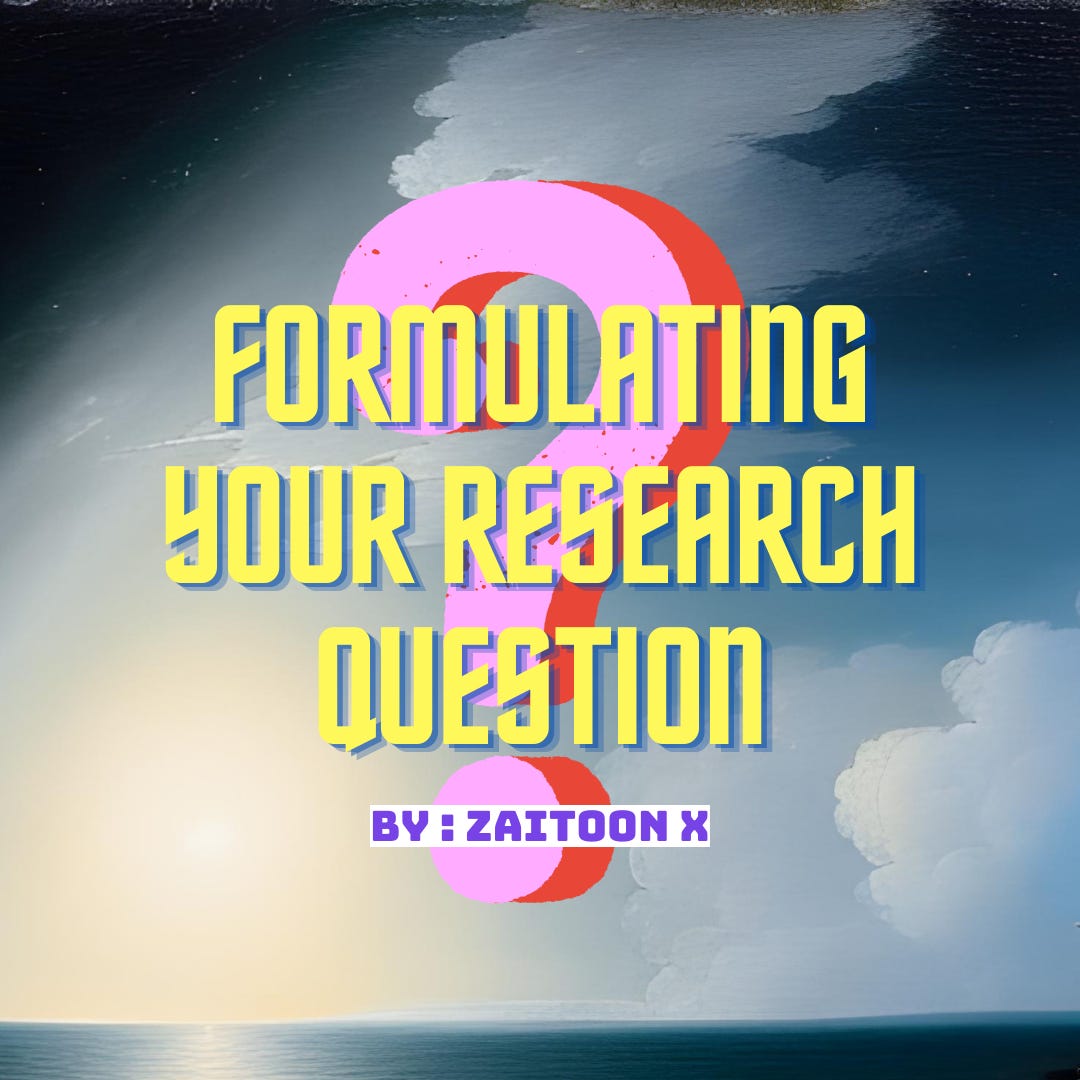Formulating Your Research Question
Essential Considerations and Examples
Part 5 of the Access : Research series.
Now that you have chosen your research topic, defining your research question is the next step in the research process. Taking the time to carefully formulate your research question will help ensure the success and validity of your research project. Here are some key points to consider when formulating your research question:
Clarity and specificity: Your research question should be clear, well-defined, and specific, so that it can be answered in a focused and meaningful way. Avoid vague or overly broad research questions as they may result in ambiguous findings or make it difficult to conduct your research.
Answerability: Your research question should be answerable, meaning that it should be possible to gather data and evidence to provide a conclusive answer. Consider the feasibility of addressing your research question given the available resources, time, and scope of your study.
Alignment with research goals: Your research question should align with the overall goals and objectives of your research project. It should clearly state what you intend to investigate and why it is important.
Significance: It would be beneficial to emphasize the importance of choosing a research topic that is significant and has relevance to the field of study or to society as a whole. Researchers should aim to address gaps in knowledge, contribute to existing literature, or provide practical implications.
Research Ethics: It is crucial to mention the ethical considerations involved in selecting a research topic. Researchers should ensure that their proposed research adheres to ethical guidelines and safeguards the rights and well-being of participants, if applicable.
Feasibility and Resources: Researchers should assess the feasibility of their research topic in terms of available resources, time constraints, and access to necessary data or participants. Considering these factors at the initial stage can help avoid potential challenges or limitations during the research process.
Example # 1
Poorly formulated research question: "What causes cancer?"
This research question is overly broad, vague, and lacks specificity. It does not provide a clear direction for research and may result in a broad and unfocused study that is difficult to answer effectively.
Well-formulated research question: "What is the relationship between smoking and lung cancer in adults aged 50 and above, in a population-based cohort study in the United States?"
This research question is concise, clear, and constricted. It specifies the key concepts (smoking, lung cancer, adults aged 50 and above), the research design (population-based cohort study), and the study location (United States). It is focused, answerable, and aligns with the research goals of investigating the relationship between smoking and lung cancer in a specific population.
Example # 2
Bad research question: "What are the effects of climate change on the environment?"
Good research question: "What is the impact of rising temperatures on the nesting behavior of sea turtles in the Gulf of Mexico?"
This research question specifically addresses the impact of rising temperatures on the nesting behavior of sea turtles in a specific region, the Gulf of Mexico. It highlights a specific aspect of climate change and its effects on a particular species and behavior. This focused question allows for a more targeted and meaningful study.
A well-formulated research question should be specific, clearly state the key concepts or variables, identify the population or context of interest, and provide a clear direction for the research study. It should also be feasible to answer within the scope of the study and align with the research goals and objectives. Encouraging researchers to make their research questions concise, clear, and constricted can help ensure that their research is focused, meaningful, and able to generate valid and relevant findings.






